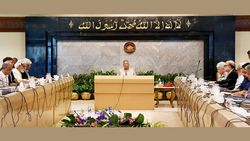The United Nations declared 2021-2030 as the "Decade on Ecosystem Restoration". Such declarations bring us both good news and bad. First, the bad news: the nature is really in a very bad shape, which is why the UN had to dedicate a whole decade to raising awareness and taking actions to make it better. The good news is, we are at least recognising ecosystem degradation as a global crisis. And, we may expect some concrete local, national, and global initiatives to restore the health of our ailing ecosystems.
The problem with our approach to biodiversity loss and ecosystem destruction is that we understand the crisis, but do not do much about it. It may seem that the issue of biodiversity conservation has been pushed aside over the last year or so due to the pandemic. But it is not true. The UN's efforts to save the world's biodiversity, through its Convention on Biological Diversity (CBD), have failed repeatedly. Our progress in respect of the "2010 Biodiversity Targets" (2002−2010), "Decade on Biodiversity" (2011−2020), and the "2020 Aichi Biodiversity Targets" is not something to be proud of. Over the last 50 years, for example, the world has lost 35 percent of its wetlands and about 70 percent of mammals, birds and fish populations. Now, one in every eight plant and animal species are counting days to become extinct over the next few decades.















 News
News